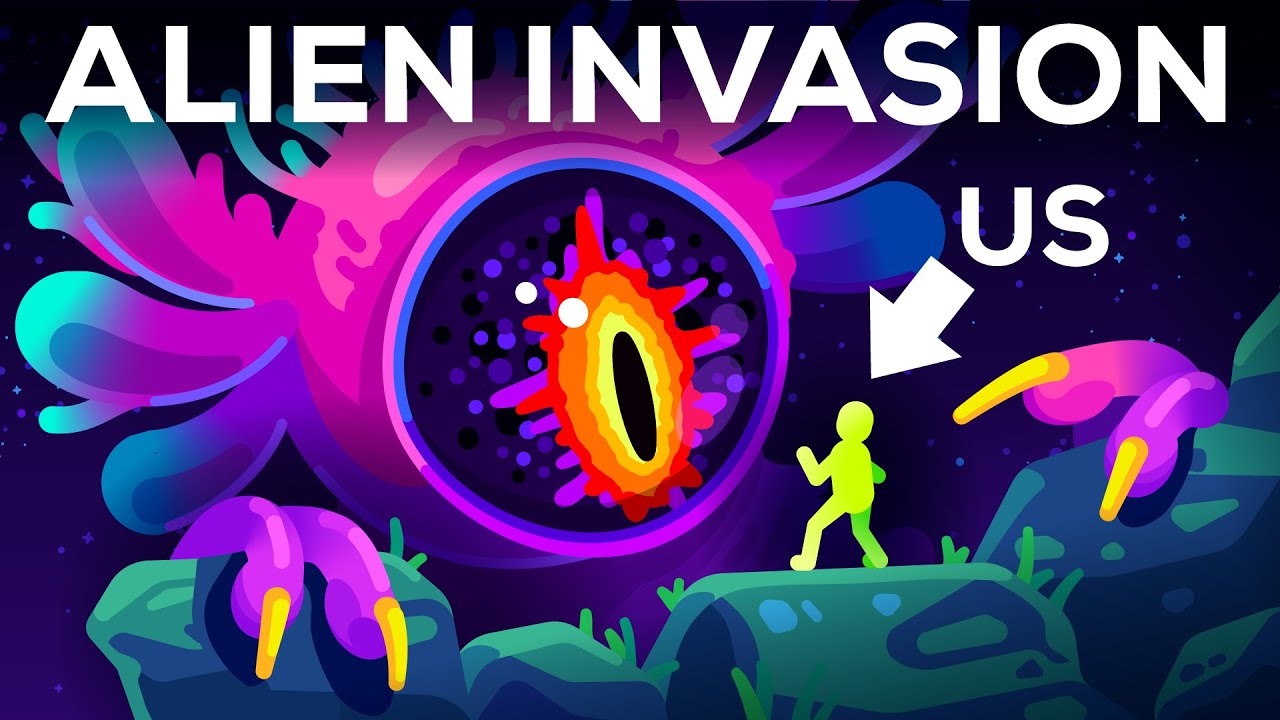There's something so funny about extrapolating modern human behavior up to hypothetical alien civilizations. It's a part of our science fiction that hasn't changed much from the days when life on Mars or a water-rain soaked Venus was still Hard Since Fiction. Like, they even admit 99.99% of the video is imaginary -- but they can't imagine anything else? Silly.
At 5:32 they show this stylized progression from hunter-gatherers, to agrarian settlements, to modern cities. What's telling is that the agrarian settlements are bleak beige and yellows and oranges; poop and skeletons piled up everywhere. The modern city is a pristine and healthy green, with roads and airplanes and clean water. If there's any consideration to the consequences of present day life, it's a footnote. A bug to be ironed out in the next technological rollout.
They just love to end videos on a sort of 'Cosmic Call to Arms', where humanity goes on to colonize the stars. Never any consideration of what may need to happen before, the work and organization necessary to facilitate such a lofty undertaking. Modern problems are barely worth considering, because we'll just engineer our way around it, by Jove!
If it was just Kurzgesagt, I probably wouldn't bother to write this out. But it's the most prominent and competently produced version of a narrative that seems to be everywhere. There's also a lot of lefty analysis and breakdown of these tropes. But I think that's only half of the work necessary. You can't just shoot down a story and call it a day. You have to fill that space with a more compelling story, give people something to think about and contemplate instead. Otherwise the old story just hangs around, getting bigger and more silly with each refutation it survives.


I liked the part where the wallbreakers were like "I am your wallbreaker!" And they broke walls all over the place.
I loved the part where the wallbreaker said "Trisolaris, tear down this wall!" and then the two solar systems lived in peace.
The only good strategy against trisolaris is offering to terraform Venus and Mars for them.
Gosh I have so much I could say about the premise of the series. I wish people would just take it as an enjoyable sci-fi series instead of a philosophical work.
Trisolarians were just doing a little bit of trolling with their tiny ass robots.
I mean, its immersed in philosophy. So much of the book takes premises from these old exercises in Socratic pre-science.
The first book has a very literal iteration of Descartes's Malicious Demon, messing with all our scientific experiments so that we can never advance our understanding of quantum physics. The Farmer and the Shooter parables are, similarly, musings on the nature of the universe and our capacity for understanding natural laws. The space battles expose all sorts of strategic and moral problems inherent to a war that's so far from home. The very title of the book is reference to fundamental struggles we experience with basic mathematics, and the philosophical implications of those struggles.
These are fundamentally philosophical texts. All the major crises within the chapters are predicated on an assortment of classical and modern philosophical thought experiments. There's definitely enjoyable Sci-Fi within its pages, but you're really missing the forest for the trees if you just tune out all the deep thinking shit.
Good points.
IT"S WALLING TIME
:honecker-interesting: